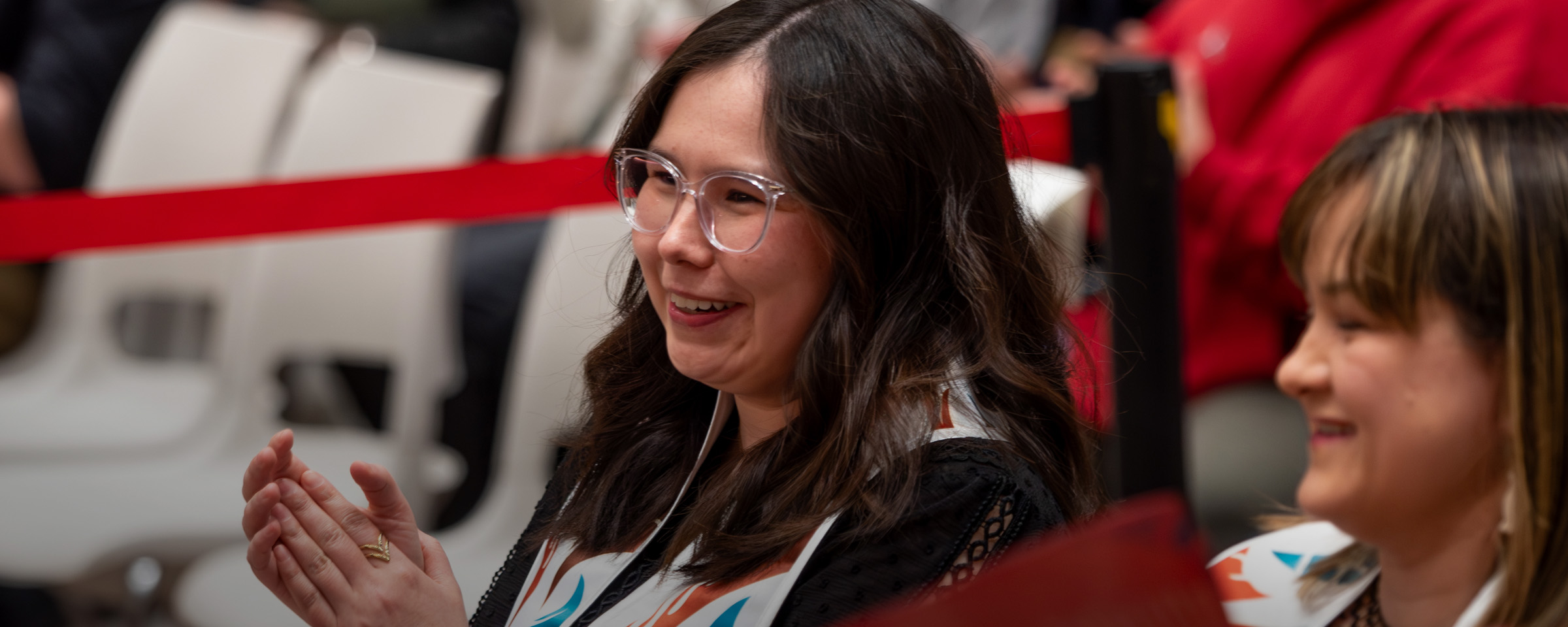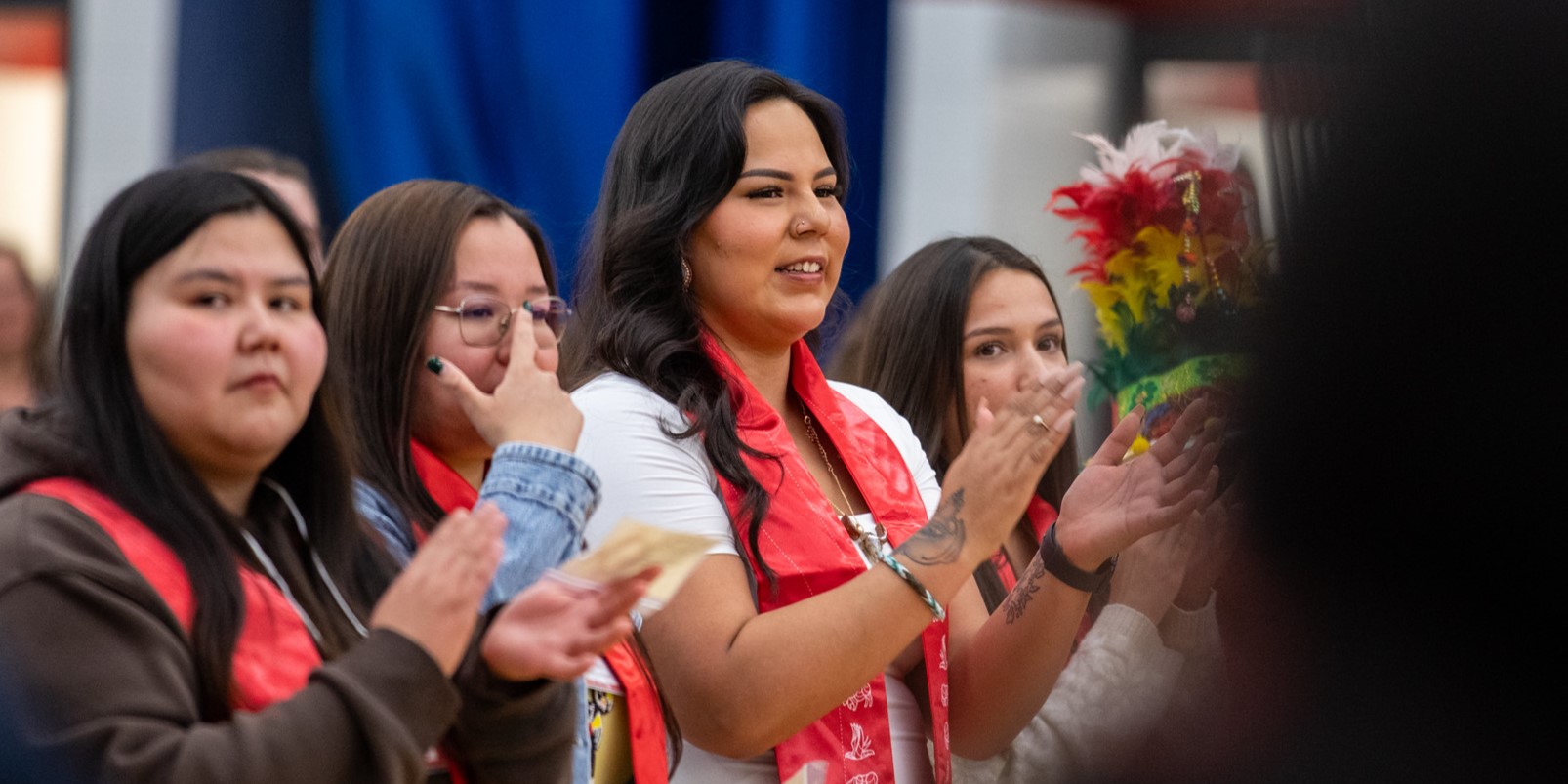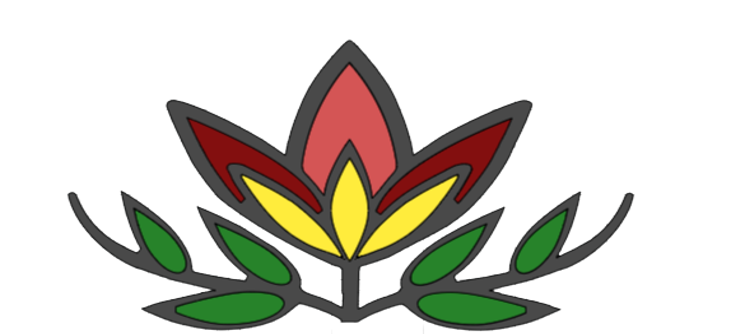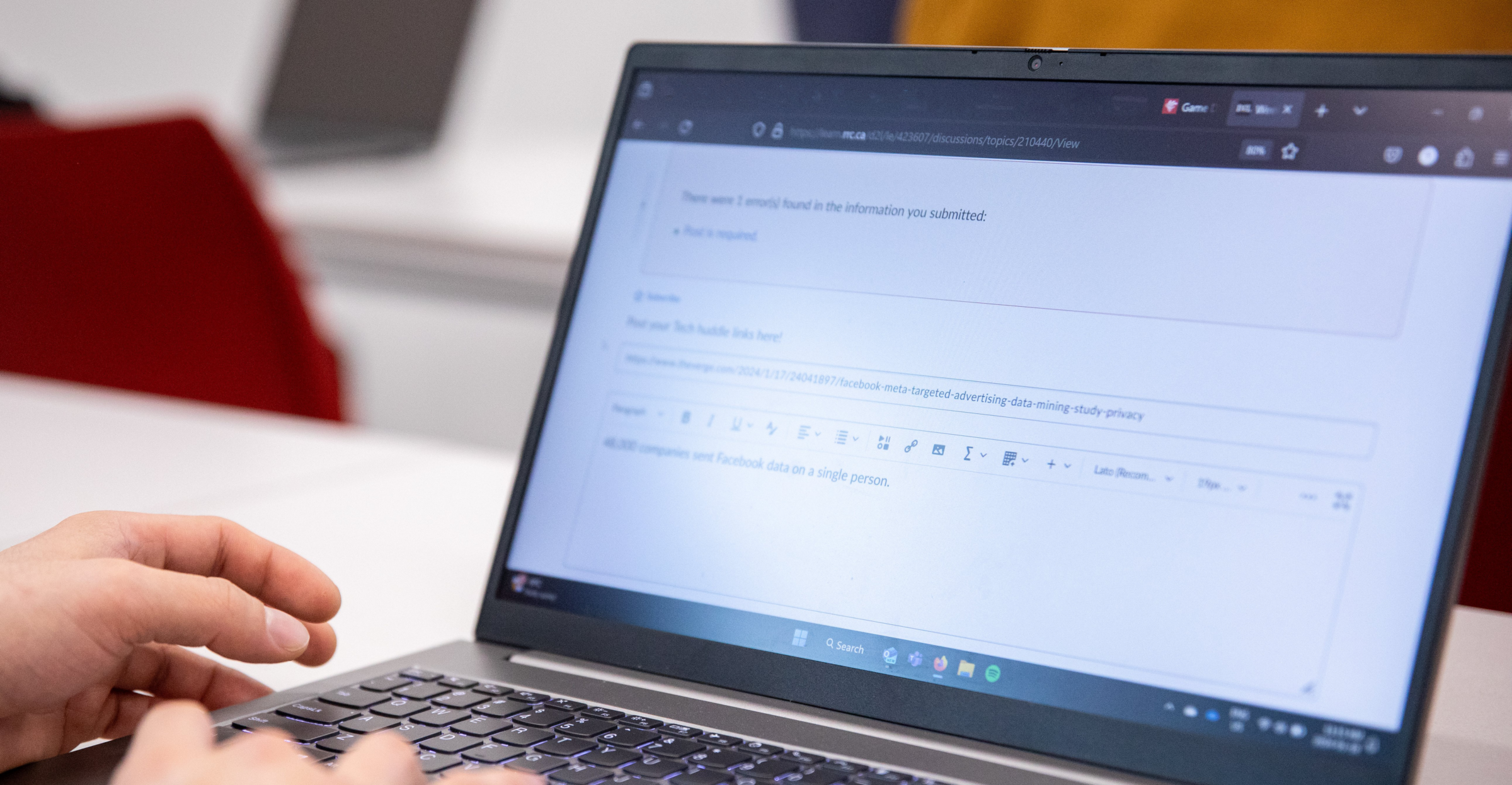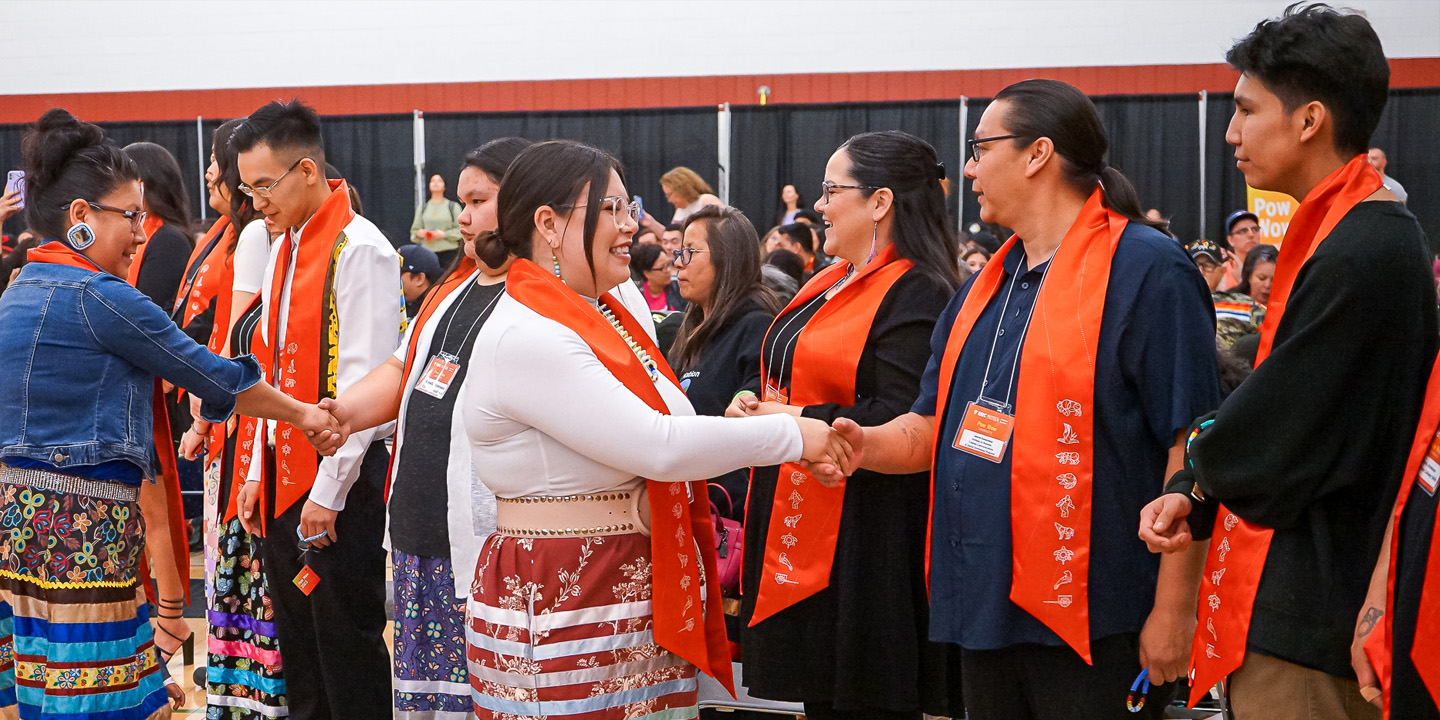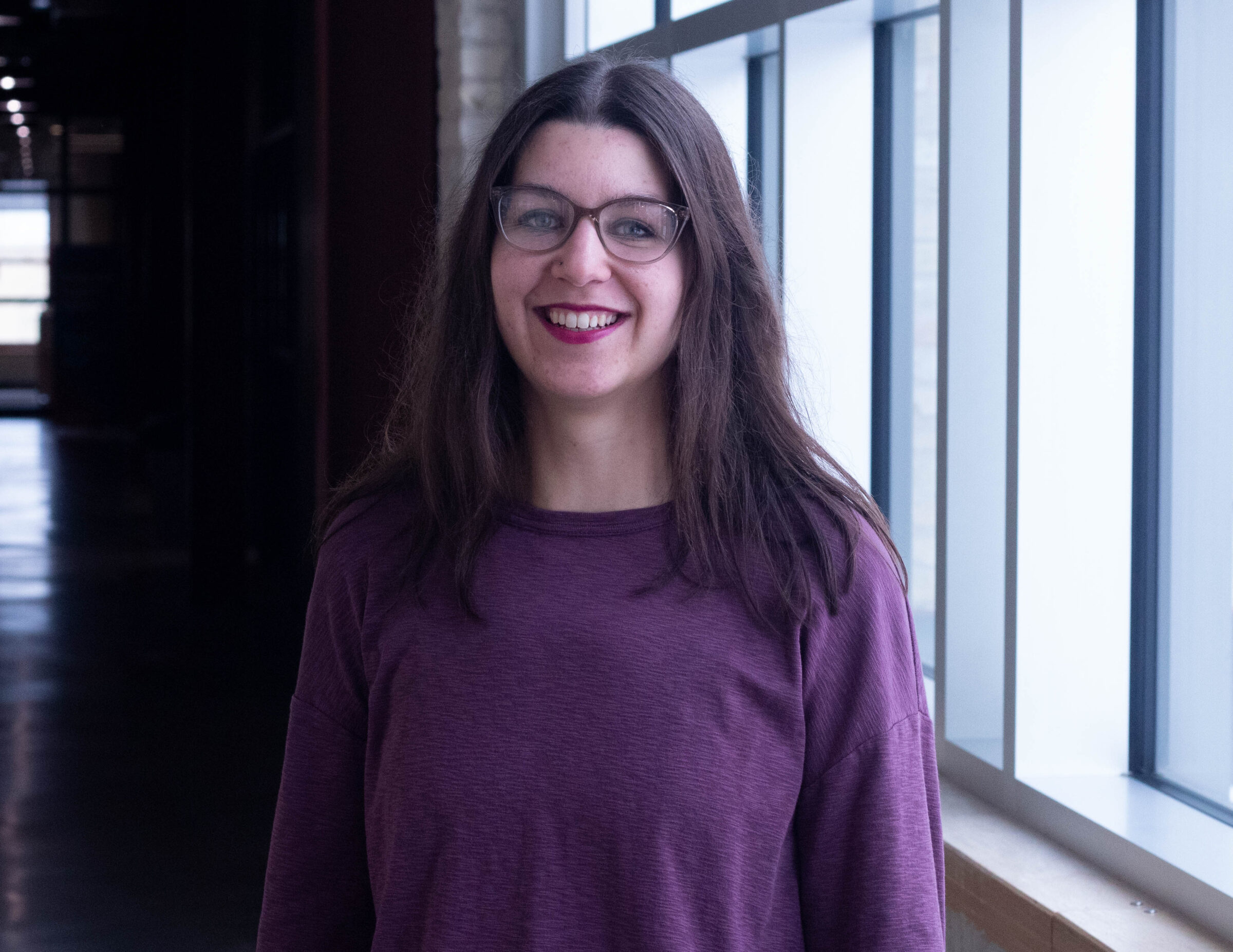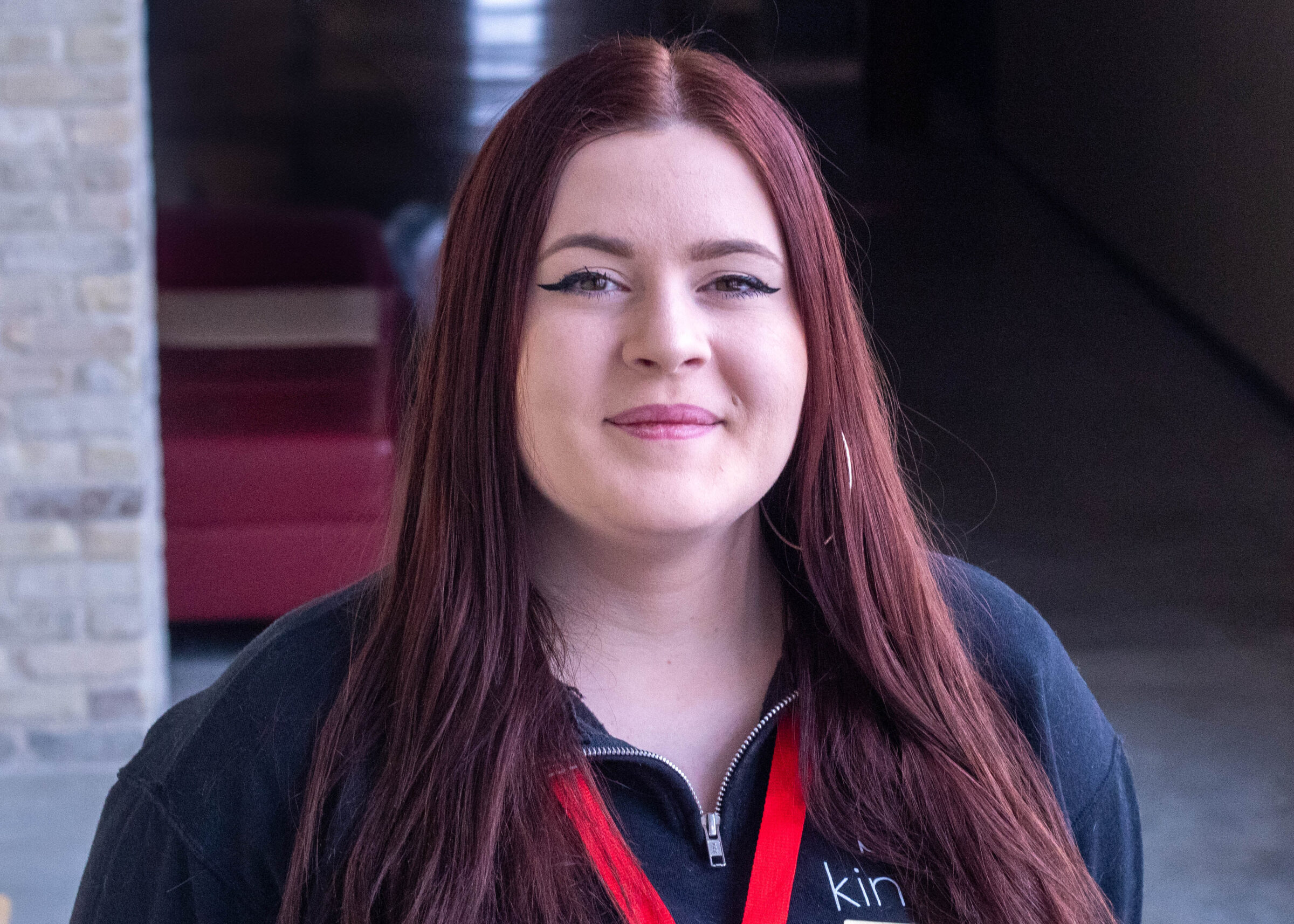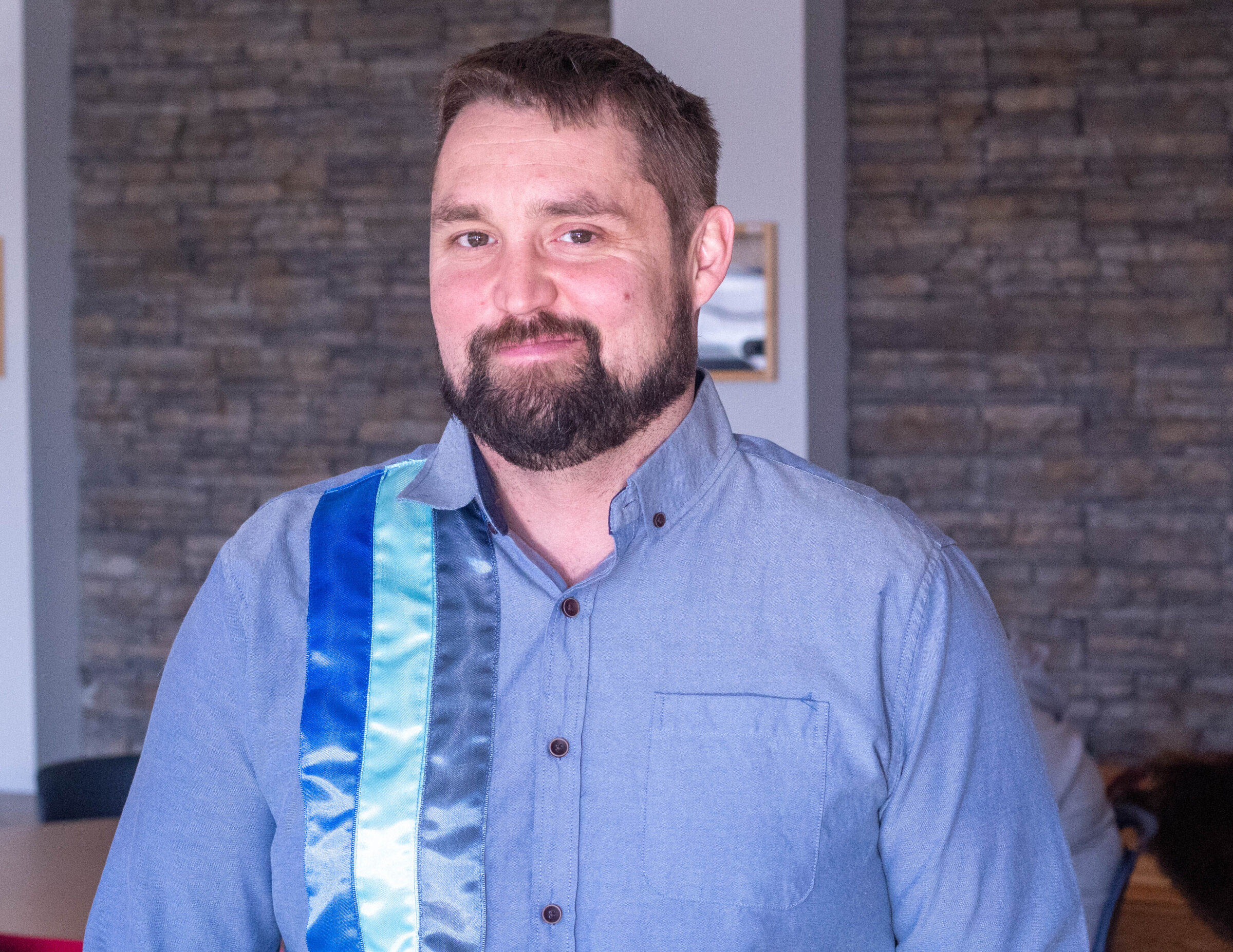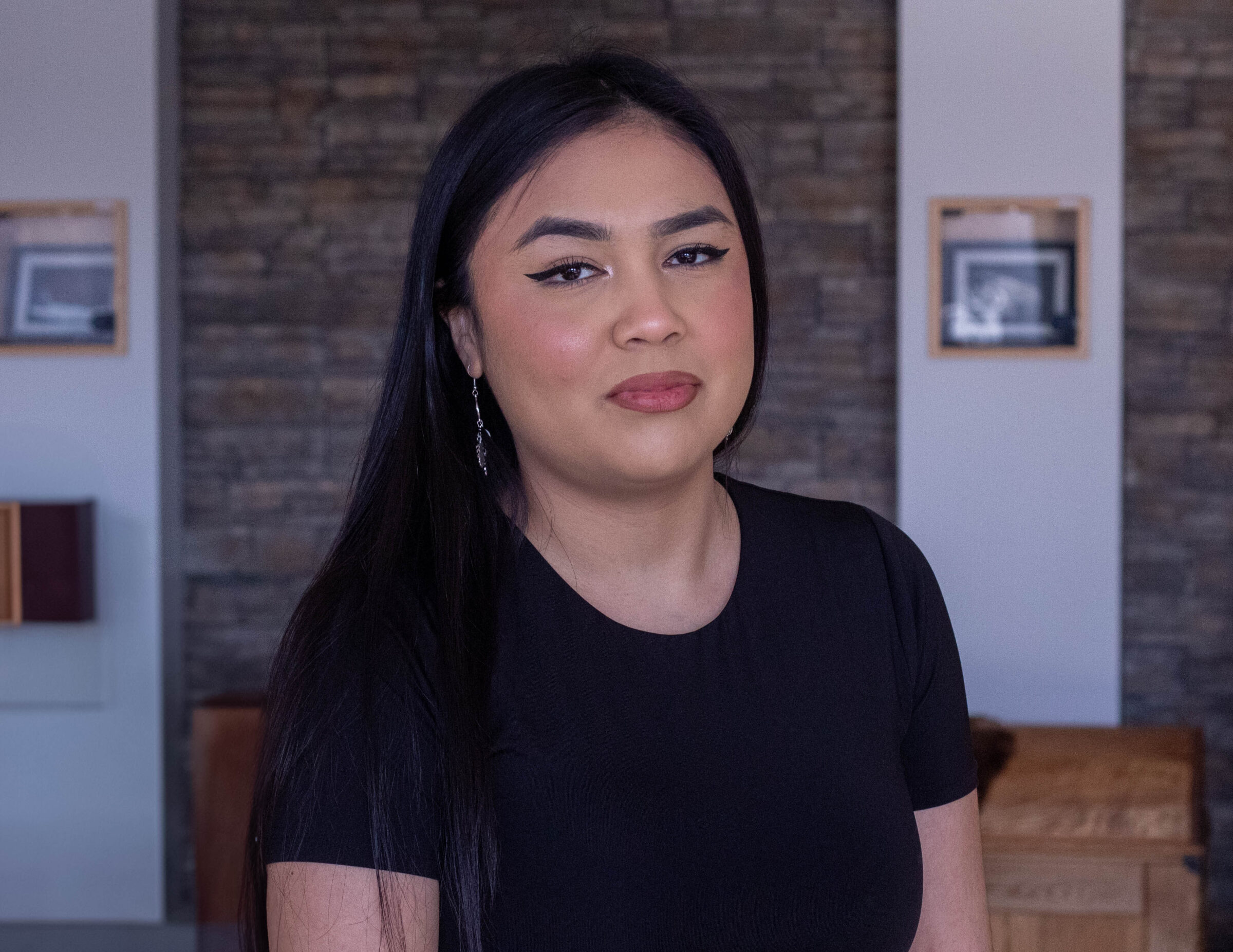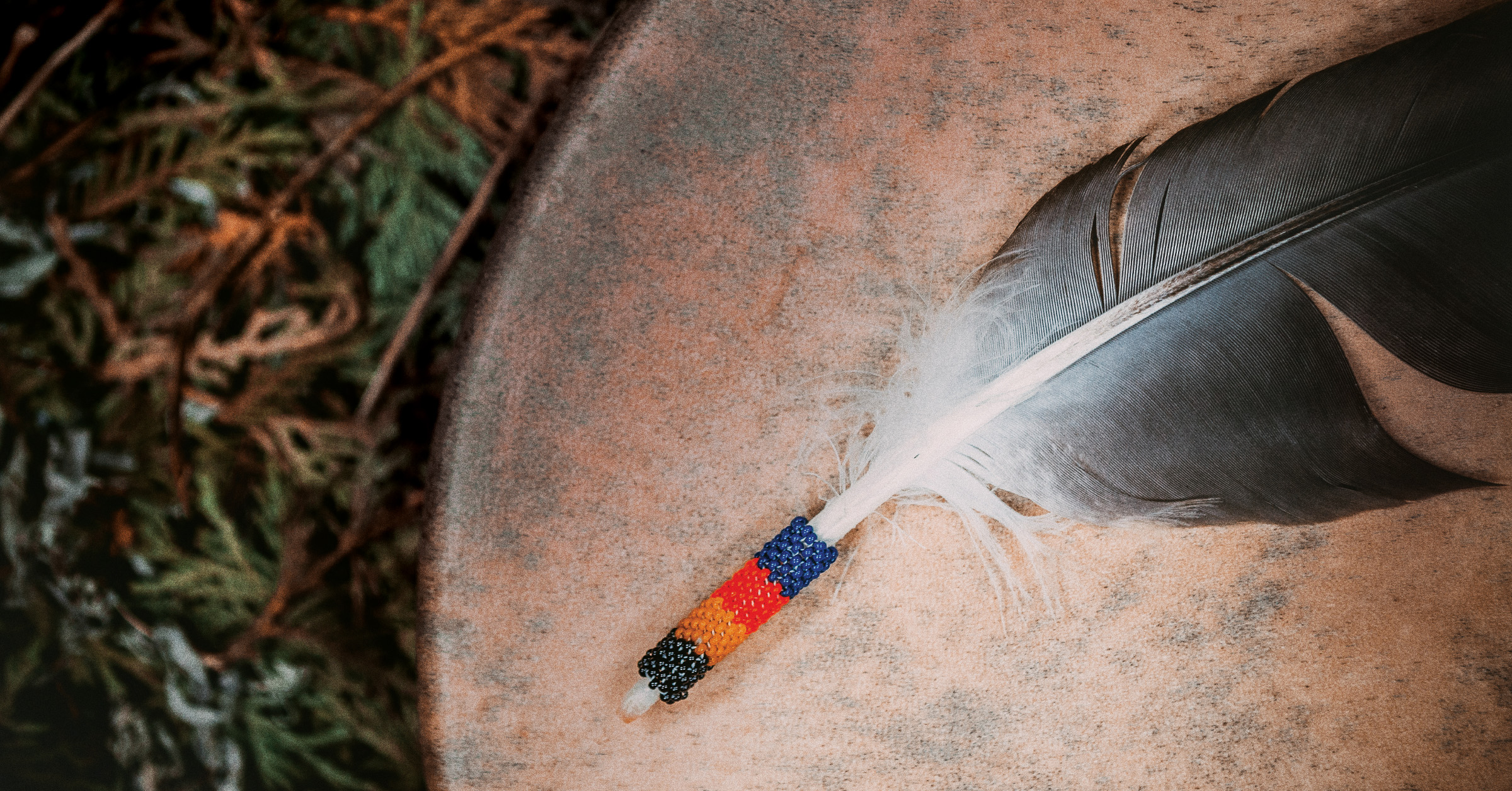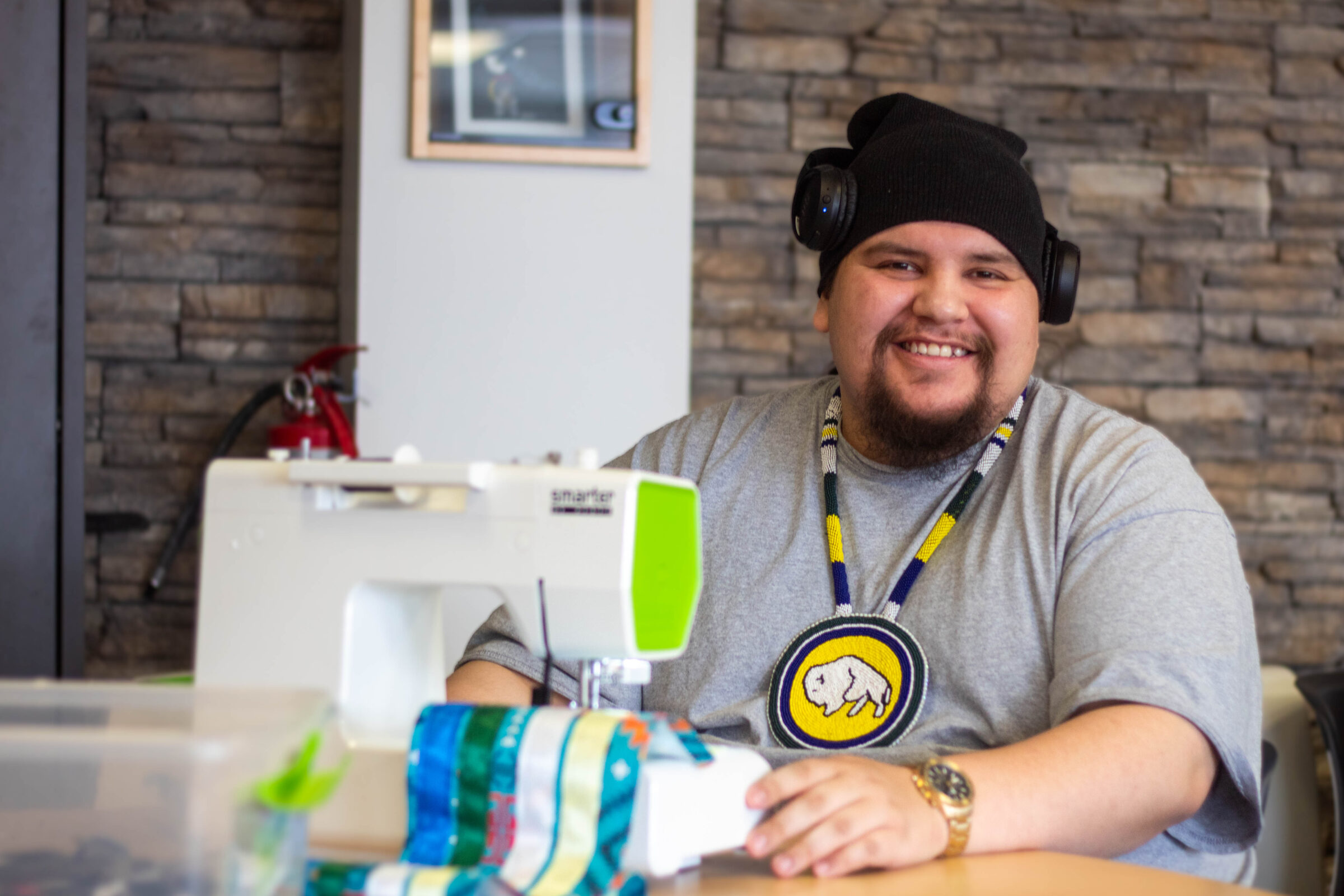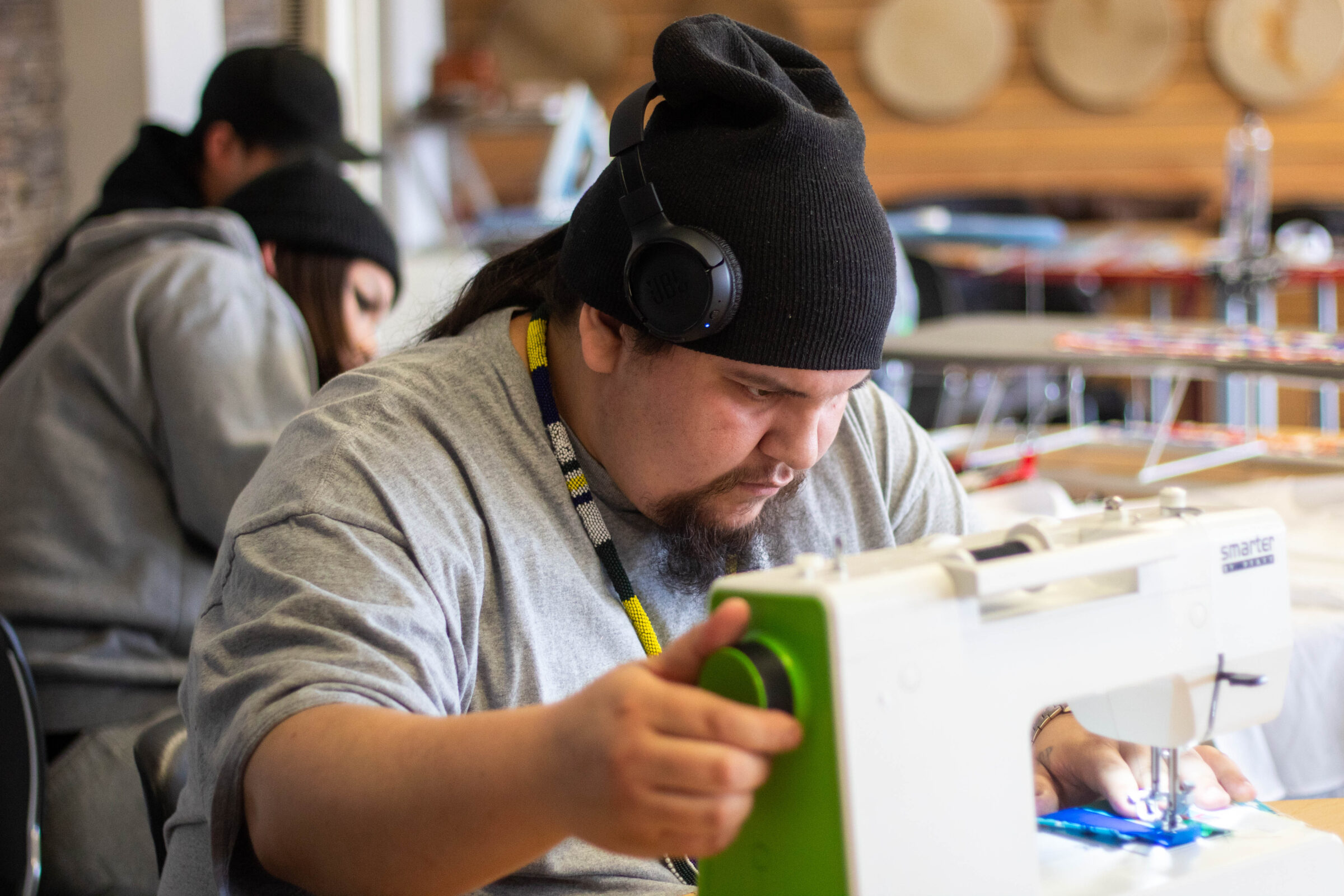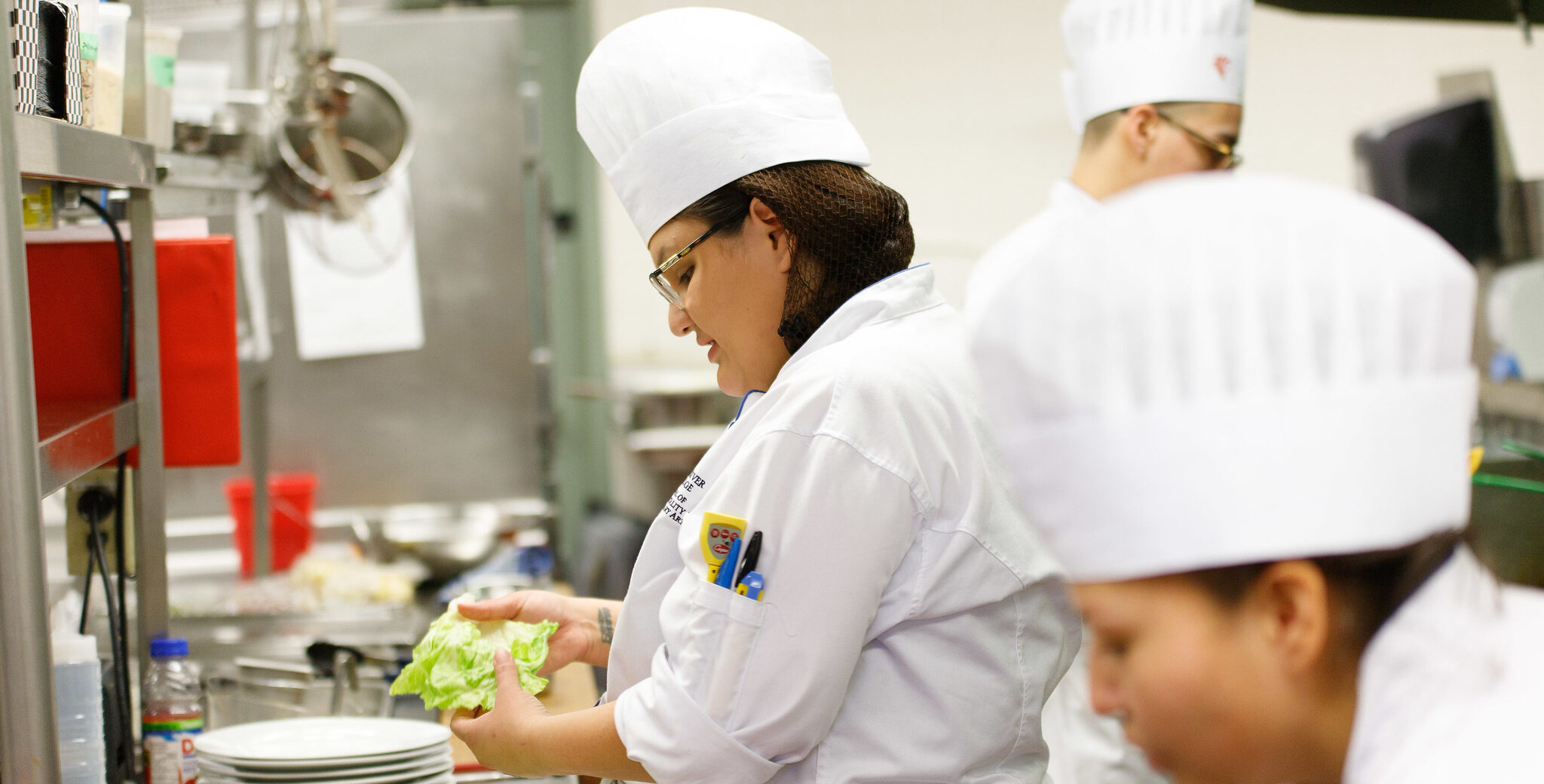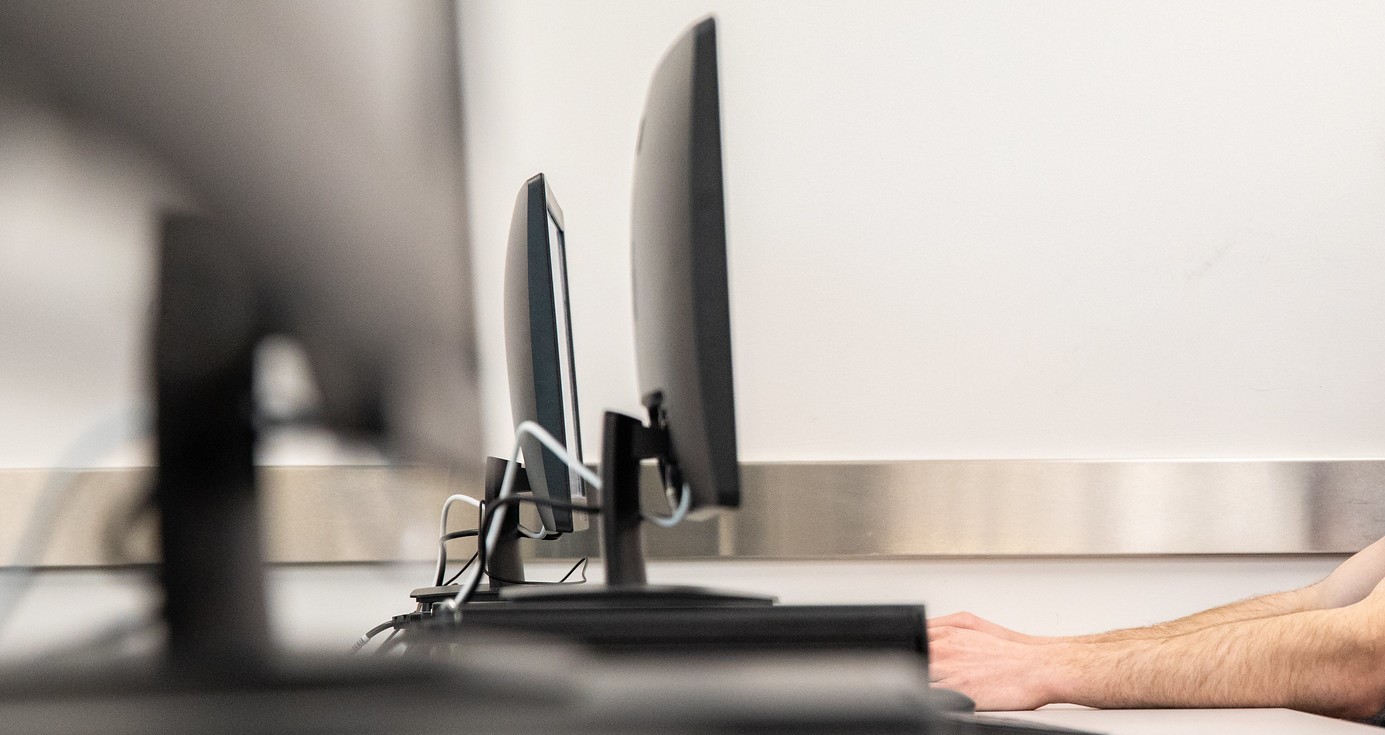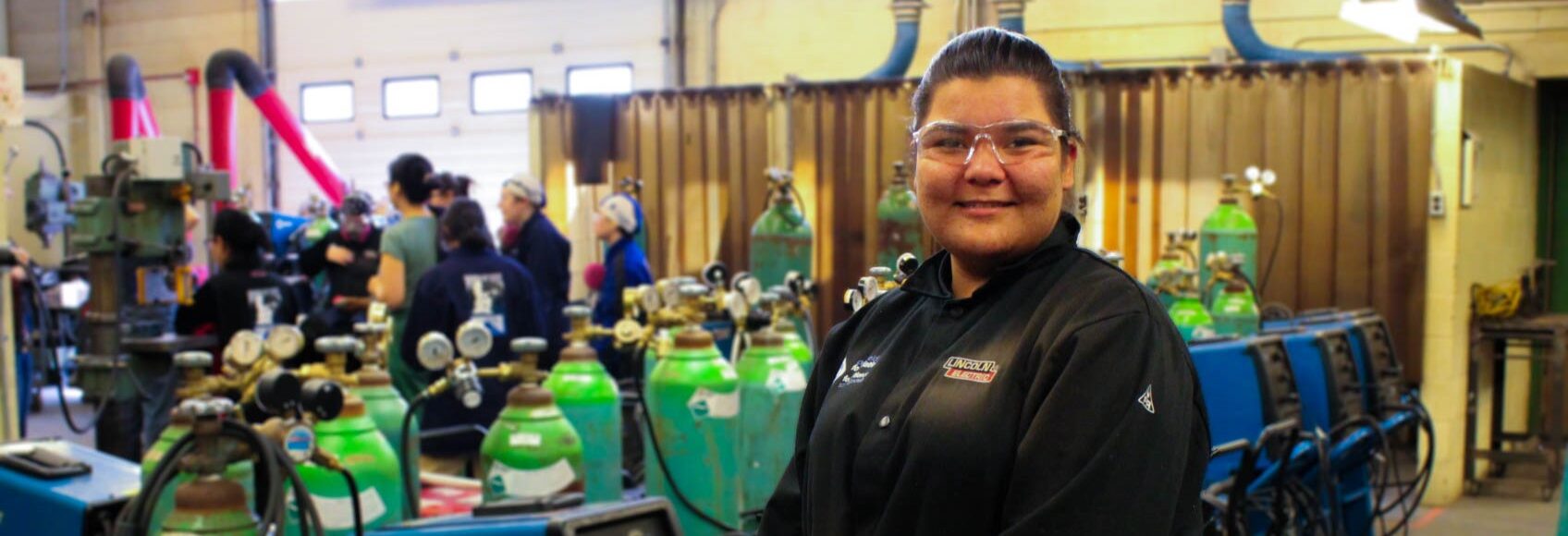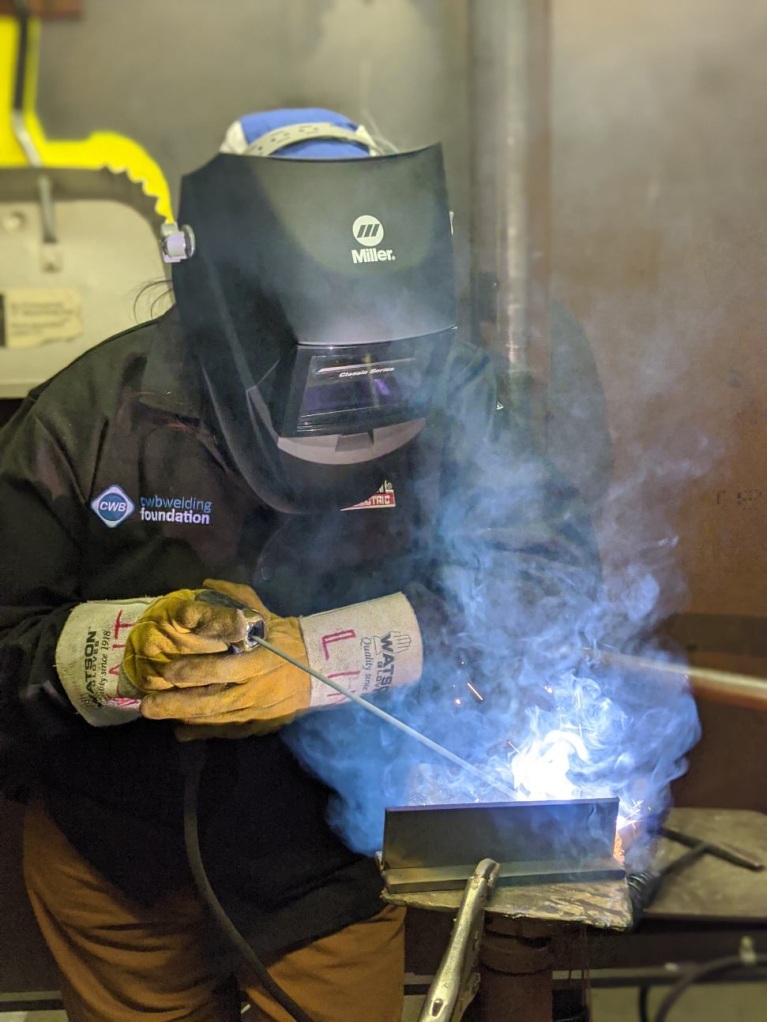Putting Healing into Action
In the spring of 2022, Tabitha Harper was working as an assistant case manager at Kinonjeoshtegon’s Jordan’s Principle.
She had always been committed to helping her community, but she felt that she could do more – she just needed the right tools and knowledge.
Years earlier, she had applied to a social work program at a university and was rejected.
“That felt like a sign not to go down that path,” Harper recalled.
After working as an assistant case manager, she turned to Google to find some direction. She searched buzzwords like ‘Indigenous innovation,’ ‘working with people,’ and ‘social work.’
That’s when she discovered the Social Innovation and Community Development (SICD) program at RRC Polytech, and she applied that same spring.
At the time, she was using the last name Traverse, unaware that her legal surname was actually Harper – a discovery that added complexity to her application process. To qualify for the program, she had to complete entrance assessments and take an additional course. Despite the extra hurdles, she was drawn in by the program’s focus on creating change in both urban and rural communities. She could explore both the theory and practical skills she needed to engage in meaningful socioeconomic development.
When she began classes that fall, something clicked.
“One of my instructors asked, ‘What makes you angry?’” she said. “That question has been driving me ever since.”
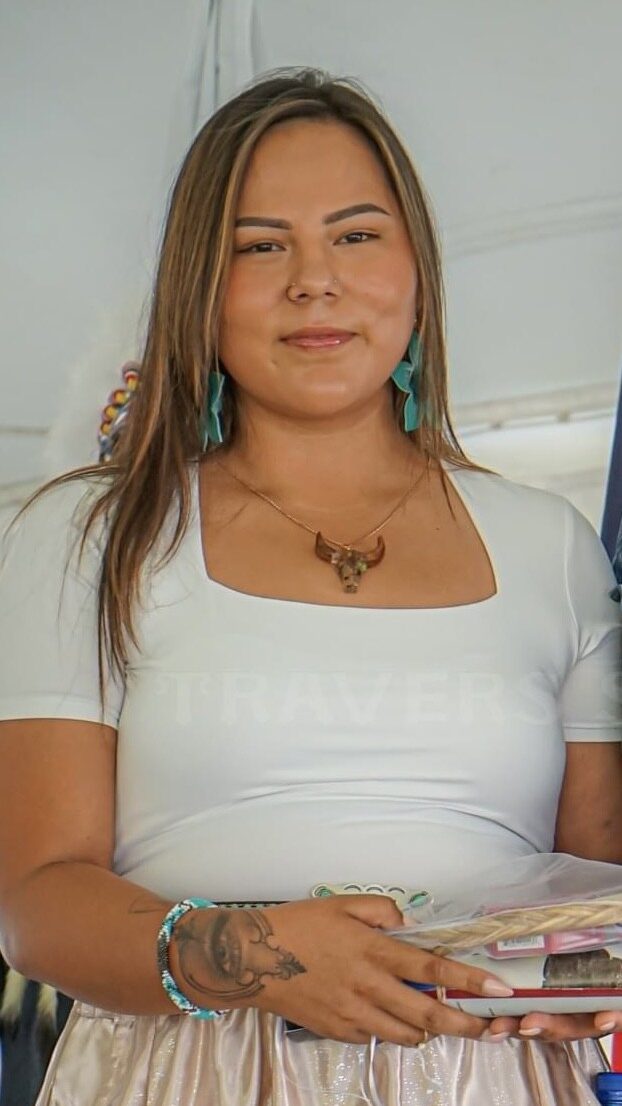
Credit: Desmond Travers, Travers Studios.
Harper made the choice between two second-year specializations – Indigenous Social Entrepreneurship or Community Development – to pursue the path that would allow her to create change from the ground up and at leadership levels through Indigenous Social Entrepreneurship.
“I had a lot of anger,” she said. “I saw the disparities Indigenous people face in my family, in my community, and in my own life. I didn’t understand why things were the way they were. I needed to find out.”
In her first year, Harper immersed herself in the history of the land now known as Canada and its relationship with Indigenous peoples. The more she learned, the more clarity – and fury – she gained.
“This has been happening for more than 400 years, and even more intensely in the last 150,” she said. “After the treaties were signed, we were betrayed. I realized I could hold onto this anger and stay in this pit of despair, or I could apply this anger and see how I can help.”
After graduating with a specialization in Indigenous Social Entrepreneurship, Harper joined the Manitoba Museum as the Museum Advisor for Indigenous Relations and Reconciliation.
Over the past year, she has carved out a unique and influential role functioning as a liaison between the museum and Indigenous communities, governments, and the museum’s senior leadership. Her focus is on reconciliation, cultural revitalization, and historical accountability.
“When I started, I was a little intimidated to work in museum spaces,” she said. “But as I settled into the role, I realized museums are often very static, even though they’re committed to education. My role is to help shift that.”
Her first six months were spent conducting environmental scans to learn about the museum industry’s past relationships and practices with Indigenous Peoples.
One of the proudest moments in her role came when the Manitoba Museum issued a formal apology for having housed human remains for decades, and began work on repatriating the remains to their kinship communities. Harper played a key role in shaping the apology, which was shared publicly and now lives on the museum’s website, along with acknowledgments from First Nations, Métis, and Inuit communities.
Today, she’s leading a revolutionary project: the first natural history research initiative conducted in partnership with her home community, Kinonjeoshtegon First Nation, which is located on the west shore on the interlake of Lake Winnipeg. The research focuses on paleontology, geology, botany, and other natural sciences – all through the lens of Indigenous knowledge. Harper is guiding the consultations and engagement efforts with the community to ensure ethical practices and culturally appropriate data use.
“This work is healing. It feels like this is what I was put on this Earth to do,” she said.
She credits SICD with putting her on this path and often encourages others to consider it.
“I share this all the time with people thinking about post-secondary: consider the SICD program. The instructors are so supportive and understanding. This program got me to where I am today – where I’m doing important work, healing the anger I carry while putting it into constructive action.”
